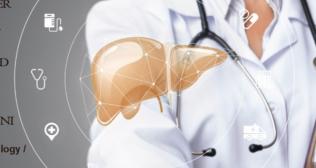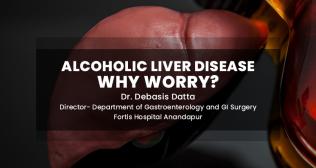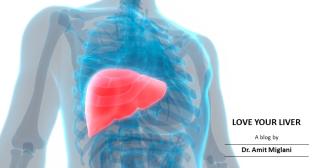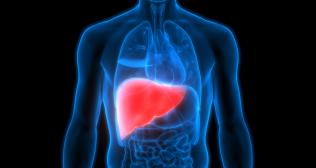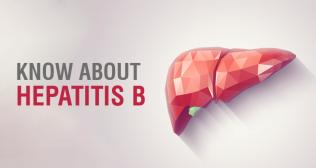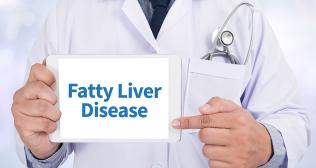
What is Stomach Ulcers: Causes, Symptoms, and Treatment Options
Introduction
Stomach ulcers, also known as gastric ulcers, are open sores that form on the inner lining of the stomach or the upper part of the small intestine (duodenum). If left untreated, these ulcers can cause discomfort and multiple problems.
Types of Stomach Ulcers
There are two primary types of stomach ulcers: Gastric and duodenal ulcers. They are categorized into two main types based on their location within the digestive system.
- Gastric Ulcers: Gastric ulcers develop on the inner surface of the stomach’s mucosal lining. They can occur in any part of the stomach, mainly in the lower part near the pyloric valve, which regulates the passage of food from the stomach to the small intestine.
- Duodenal Ulcers: Duodenal ulcers form in the duodenum, the upper portion of the small intestine, just beyond the stomach. They are more common than gastric ulcers and tend to develop near the pyloric valve, where stomach acid enters the small intestine.
What are the Causes of Stomach Ulcers?
The leading cause of stomach ulcers is the erosion of the protective lining of the stomach or duodenum. Several factors that contribute to this erosion include:
- Helicobacter pylori (H. pylori) Infection: This bacterium weakens the stomach lining’s protective layer and is a common cause of stomach ulcers.
- Regular Use of NSAIDs: Nonsteroidal anti-inflammatory drugs (NSAIDs), such as aspirin, ibuprofen, and naproxen, can irritate the stomach lining, leading to ulcer formation.
- Excessive Alcohol Consumption: Excessive alcohol irritates the stomach lining and increases susceptibility to ulcers.
- Smoking: Smoking interferes with the healing process of ulcers and worsens the symptoms.
- Stress: While stress alone may not directly cause ulcers, it can worsen the symptoms and delay the healing processes.
- Genetics: A family history of stomach ulcers may increase the chances of developing them.
- Age: Older adults are more prone to stomach ulcers.
Symptoms of Stomach Ulcers
Not all stomach ulcers are painful, and some individuals may not experience any symptoms, especially in the early stages of the condition. Symptoms that vary from person to person include:
- Burning pain: This pain is often felt in the upper abdomen and radiates to the chest.
- Indigestion: It comprises persistent indigestion, bloating, or discomfort, especially after eating.
- Nausea and Vomiting: Some individuals may experience nausea and sometimes vomiting.
More severe symptoms include:
- Severe Abdominal Pain: A sharp, persistent abdominal pain that radiates to the back and worsens with movement or eating can indicate a perforated ulcer (perforations in the lining of the stomach or the intestine) or internal bleeding.
- Black or Bloody Stools: Passing black, tarry stools or blood in stools indicates gastrointestinal bleeding due to erosion of the ulcer into blood vessels.
- Vomiting Blood: Vomiting blood indicates bleeding in the upper gastrointestinal tract, which requires immediate medical attention.
- Fainting or Dizziness: Severe bleeding from a stomach ulcer can lead to a drop in the blood pressure and cause symptoms such as fainting, dizziness, or lightheadedness.
- Rapid Heart Rate: An increased heart rate (tachycardia) may occur as the body tries to compensate for blood loss due to ulcer-related bleeding.
- Difficulty Breathing: Severe internal bleeding or a perforated ulcer can cause pressure on the diaphragm or irritation of the surrounding tissues, leading to difficulty breathing or shortness of breath.
- Loss of appetite: The appetite is reduced due to feeling full quickly or a decreased desire to eat, which may lead to unexplained weight loss and malnutrition.
- Anemia: Due to internal and chronic blood loss, anemia might occur.
- Dysphagia: It refers to the difficulty in swallowing food due to the narrowing down of food passage in the digestive tract.
How is Stomach Ulcer Diagnosed?
Here are some common diagnostic approaches:
- Assessment: The doctor will discuss symptoms, medical history, and current medications. They may perform a physical examination to check for abdominal tenderness or signs of bloating.
- Endoscopy: Endoscopy involves passing a camera-mounted thin, flexible tube through the mouth and into the esophagus, stomach, and duodenum. This allows the doctor to visualize any ulcers or inflammation in the stomach lining directly.
- Upper GI Series: In this procedure, the person is asked to swallow a chalky liquid containing barium, which coats the lining of the digestive tract and makes it visible on X-rays to identify ulcers or other structural issues.
- Laboratory Tests: Blood, stool, or breath tests may be prescribed to check for the presence of Helicobacter pylori (H. pylori) bacteria and detect the presence of antibodies against H. pylori.
- Biopsy: During an endoscopy, the doctor takes a small tissue sample (biopsy) from the lining of the stomach or duodenum to check for signs of infection, inflammation, or cancer.
- CT Scan or MRI: In some cases, imaging tests, such as computed tomography (CT) scans or magnetic resonance imaging (MRI), may be used to identify complications of stomach ulcers, such as perforation or bleeding.
Once a stomach ulcer is diagnosed, treatment can be tailored to address the underlying cause.
Treatment
The following treatment strategies aim to alleviate symptoms and prevent complications:
- Antibiotic therapy to eradicate bacteria
- Proton pump inhibitors (PPIs) and H2-receptor antagonists to reduce stomach acid production
- Antacids to provide temporary relief by neutralizing stomach acid
- Restrictions on NSAIDs, alcohol, and smoking to promote healing and prevent recurrence
- Consuming smaller, more frequent meals and avoiding spicy or acidic foods to reduce stomach irritation
- Meditation, yoga, or therapy to manage stress and alleviate symptoms
- Surgery in severe cases to treat complications
In conclusion, stomach ulcers can significantly impact an individual’s quality of life, but most ulcers can be effectively managed with proper diagnosis and treatment. It’s crucial to seek medical attention if the symptoms suggest a stomach ulcer to prevent complications and promote healing. By addressing the underlying causes and adopting healthy lifestyle habits, individuals can successfully manage stomach ulcers and enjoy improved well-being.
Popular Searches :
Hospitals: Cancer Hospital in Delhi | Best Heart Hospital in Delhi | Hospital in Amritsar | Hospital in Ludhiana | Hospitals in Mohali | Hospital in Faridabad | Hospitals in Gurgaon | Best Hospital in Jaipur | Hospitals in Greater Noida | Hospitals in Noida | Best Kidney Hospital in Kolkata | Best Hospital in Kolkata | Hospitals in Rajajinagar Bangalore | Hospitals in Richmond Road Bangalore | Hospitals in Nagarbhavi Bangalore | Hospital in Kalyan West | Hospitals in Mulund | Best Hospital in India | Gastroenterologist in Jaipur | Cardiology Hospital in India
Doctors: Dr. Rana Patir | Dr. Rajesh Benny | Dr. Rahul Bhargava | Dr. Jayant Arora | Dr. Anoop Misra | Dr. Manu Tiwari | Dr. Praveer Agarwal | Dr. Arup Ratan Dutta | Dr. Meenakshi Ahuja | Dr. Anoop Jhurani | Dr. Shivaji Basu | Dr. Subhash Jangid | Dr. Atul Mathur | Dr. Gurinder Bedi | Dr. Monika Wadhawan | Dr. Debasis Datta | Dr. Shrinivas Narayan | Dr. Praveen Gupta | Dr. Nitin Jha | Dr. Raghu Nagaraj | Dr. Ashok Seth | Dr. Sandeep Vaishya | Dr. Atul Mishra | Dr. Z S Meharwal | Dr. Ajay Bhalla | Dr. Atul Kumar Mittal | Dr. Arvind Kumar Khurana | Dr. Narayan Hulse | Dr. Samir Parikh | Dr. Amit Javed | Dr. Narayan Banerjee | Dr. Bimlesh Dhar Pandey | Dr. Arghya Chattopadhyay | Dr. G.R. Vijay Kumar | Dr Ashok Gupta | Dr. Gourdas Choudhuri | Dr. Sushrut Singh | Dr. N.C. Krishnamani | Dr. Atampreet Singh | Dr. Vivek Jawali | Dr. Sanjeev Gulati | Dr. Amite Pankaj Aggarwal | Dr. Ajay Kaul | Dr. Sunita Varma | Dr. Manoj Kumar Goel | Dr. R Muralidharan | Dr. Sushmita Roychowdhury | Dr. T.S. MAHANT | Dr. UDIPTA RAY | Dr. Aparna Jaswal | Dr. Ravul Jindal | Dr. Savyasachi Saxena | Dr. Ajay Kumar Kriplani | Dr. Nitesh Rohatgi | Dr. Anupam Jindal |
Specialties: Heart Lung Transplant | Orthopedic | Cardiology Interventional | Obstetrics & Gynaecology | Onco Radiation | Neurosurgery |







